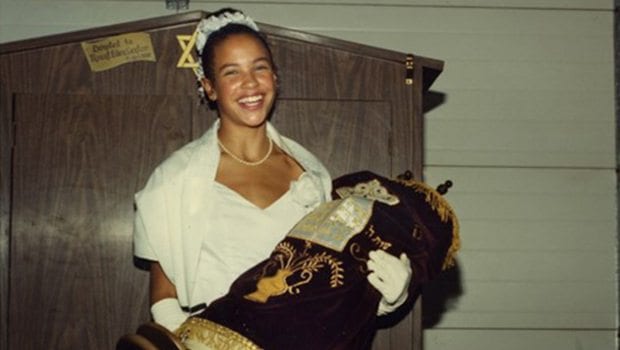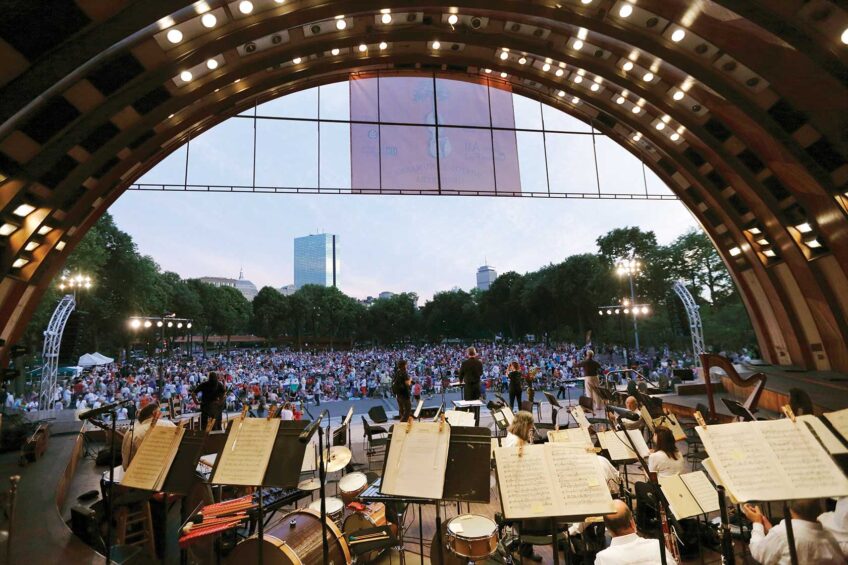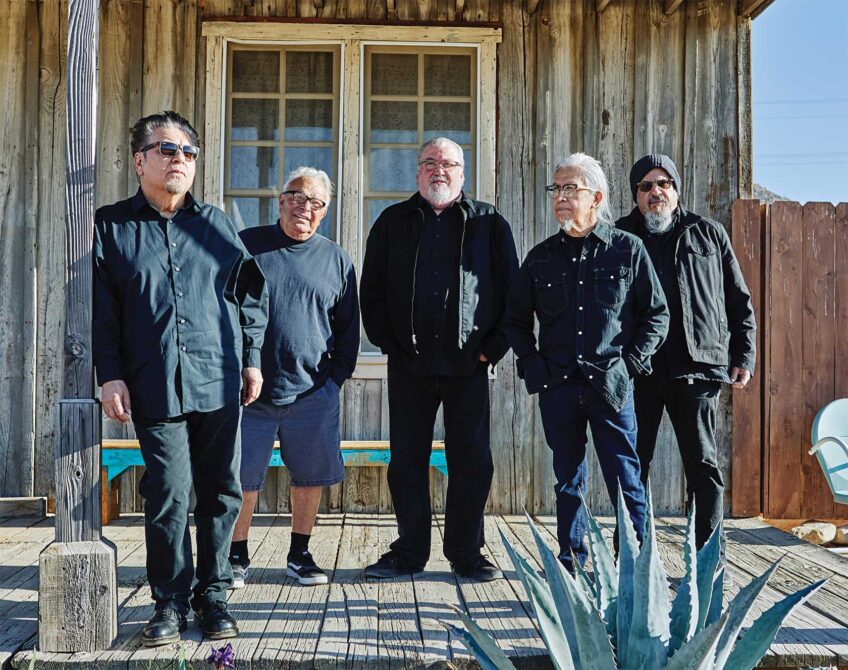
Lacey Schwartz grew up in an upper-middle-class Jewish family in Woodstock, N.Y., as the only child of Peggy and Robert Schwartz. Her parents were loving and supportive throughout her childhood and instilled a very strong sense of self in Lacey along with a strong Jewish identity. Yet for all her similarities with her parents, Lacey was different. She didn’t look white and she had a darker complexion than anyone else in her family.
Lacey always believed her family’s explanation that her looks were inherited from her dark-skinned Sicilian paternal grandfather. But when her parents abruptly split during her late teens, she finally began to acknowledge the doubts and questions that had been brewing inside her about who she really was and why she looked so different from her friends and family. When she finally gets the nerve to question her mother, Lacey learned the truth about her identity and began to explore what it means to be black and Jewish.
The filming of what became Little White Lie began while she was attending Harvard Law School, although she had been creating video diaries since her undergrad years at Georgetown University. The now-37-year-old is a filmmaker and the CEO of Truth Aid, a non-profit production company whose mission is in producing strong, quality filmmaking. In addition to her career as a filmmaker, Schwartz also does programming around racial and ethnic diversity. She recently spoke to the Banner about her story.
How did the documentary come about?
Lacey Schwartz: I already knew that I was bi-racial black but I wasn’t really talking about it. I was really fascinated about all the choice diversity and researching black Jews around the world. I thought maybe I would talk about that but I thought, ‘Well, that’s a great topic, but what’s the story?’ because I don’t think a good topic makes a good film. I realized what is great about this idea of controlling our own destiny and the fact that you can look at society and there’s lots of separation between communities. You can talk about tension between different communities and how different communities come together.
I was fascinated by people who were living with these dual identities internally. These communities are coming together within individuals. What was that like? What was that like to have to wrestle with those dual identities? I started pushing, ‘what’s the story?’ I was so fluent with those issues. I was figuring out how to incubate my own identity. I realized rather than talking about those issues on a mass level, I really had to “walk the walk and talk the talk” and go through this experience for myself, and integrate my own identity, and figure out to how work out my families’ secrets. Once I was able to do that then I could talk about the larger issues.
How is your relationship with your parents today?
I feel like we all have to gradually deal with guilt and things. That was the big part that I went through and I was grateful in how people handled things. I said in the film that it wasn’t about me. We aren’t always going to feel the same way. We’re not always going to be together. It’s not always like that. My parents were willing to go through this with me and were willing to do it. We’ve definitely come through the other side. I’m not going to say we’re all exactly on the same page but my mother, I think she’s really proud of it. I think the film has taught her to stop lying and to live more authentically.
Are you still searching for your own identity or do you feel that you know who you are at this point in your life?
I think identity is always evolving. I’m a mother and that’s part of my identity. Your identity evolves and changes all the time. I think in terms of confusion and the questions about my race and where I come from, I feel that I have much more information about it and it’s not as big as a question mark for me.
What would you like for people to take away from this movie?
I think the biggest thing, obviously, is that they’ll come out of it and they’re going to learn more about me. We’re doing an interactive project as part of this at stories.littlewhiteliethefilm.com where we also encourage people to share their little white lies. Is my story unique to a degree? Sure, but it’s also all about stories and everybody has family secrets, and people aren’t sitting down and having these conversations. Ideally, what I would really like is that other people will go on with their lives in constructive ways and start dealing with these things and dealing with the truth. It could be hard for people, but it can also be incredibly freeing. I would hope that would be the case for people.”
Little White Lie screens at the 26th Annual Boston Jewish Film Festival Saturday, Nov. 15 at the Brattle Theatre in Harvard Square at 6:30 p.m. and on Monday, Nov. 17 at the Arlington Capitol Theatre at 7 p.m.
Lacey Schwartz will be in person at both screenings and a post-screening discussion will be facilitated by Dr. Judith Rosenbaum, Executive Director of the Jewish Women’s Archive, and Dr. Jennifer Sartori, Co-Director of the Adoption and Jewish Identity Project and Associate Director of the Jewish Studies Program at Northeastern University.
For tickets or more information about the 26th Annual Boston Jewish Film Festival, please visit bjff.org.






